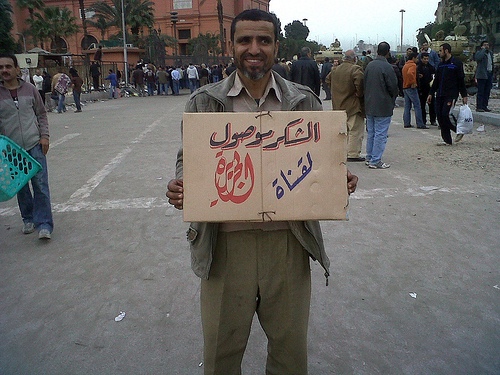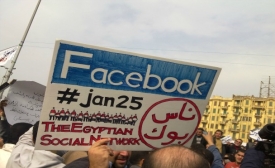egypt

First, let’s be clear that this was the Egyptian Revolution, not the “Facebook Revolution” or the “Twitter Revolution.” Events of the past few weeks belong wholly to spirit of the Egyptian people, not technology. And although it was built on democratic aspirations, this was not a revolution that drew any inspiration from the United States.
WASHINGTON -- From events of the past three weeks a number of lessons can be drawn, some old and some new:
First, the phrase "the Arab street" has been redefined by Tahrir Square. We don’t need acute listening agents or polling to see what the Arab world wants.
Egypt's revolution is momentous. In 18 days, a broad-based, nonviolent social movement overcame an entrenched, autocratic government. However, we are still in the first act of a long play.
In a sense, two different revolutions are ongoing in Egypt. One is a struggle for power, which led to Mubarak's resignation. The other, broader revolution is a transfer of power that puts media in the hands of the people and allows individuals with nothing more than a cell phone to publish, broadcast and tweet to the world in real time.
For the past few weeks, a parallel plot line to the revolutions in the Arab world has been playing out in the media. With rare exceptions, the largest American cable and satellite providers simply do not provide viewers access to Al Jazeera English, the cousin to the powerful Qatar-based world news network.
The Middle East's most populous country is gripped by a struggle to oust its ruler, creating a demonstration effect not just for the Muslim world, but the whole world. Efforts by President Hosni Mubarak to bottle up dissent have failed miserably.

The USC Center on Public Diplomacy and the USC Annenberg Center on Communication Leadership & Policy were pleased to co-host a round-table discussion about the media and Middle East Turmoil. News and social media played a crucial role as revolution sweeps through much of the Arab world.
For most Egyptians protesting vociferously — and ultimately successfully — in Cairo's Tahrir Square and elsewhere over the past two weeks, the state of the nation's science will have been far from the top of their complaints.







